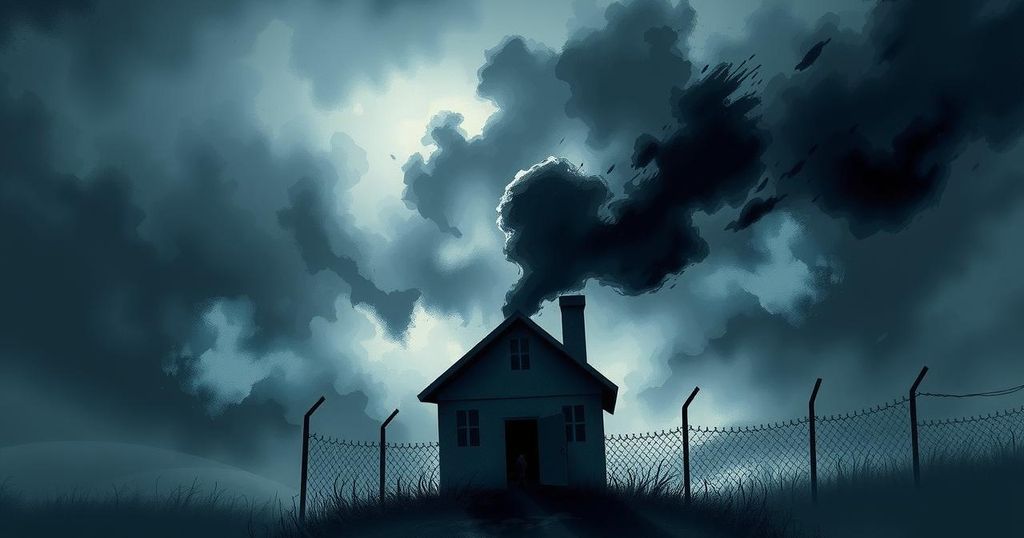Venezuelan Man Deported to El Salvador Prison After Major Surgery

- Wladimir Vera underwent major surgery but was detained.
- Vera’s family worries about his health and treatment.
- Families are desperate for information about loved ones at CECOT.
- Vera’s deportation raises legal concerns over due process rights.
- Chronic conditions can worsen in harsh prison environments.
Wladimir Vera’s Disturbing Medical Dilemma After Surgery
Desperation has taken center stage for Mariela Villamizar, whose son, Wladimir Vera, after undergoing a significant medical operation, was thrust into a Salvadoran prison. Vera, a 33-year-old welder hailing from western Venezuela, had fought to overcome a severe tuberculosis infection but his journey took a dismal turn after arriving in the U.S. as an asylum-seeker last year. According to reports from NBC News and family testimonials, his health rapidly deteriorated while in immigration detention. In January, following his release with an ankle monitor, Vera found himself in dire need of medical attention and was rushed to the emergency room. Medical records reveal that he underwent a grueling emergency right pneumonectomy, an operation which involved removing his right lung entirely. Vera’s mother expressed an attitude of hope during their turmoil, stating, “God worked a miracle, and he came out OK, but the recovery was not what he expected.” Unfortunately, the good news was fleeting as he was detained again shortly after only weeks post-operation.
Legal and Medical Concerns Rising for Detained Venezuelans
Vera’s story took a troubling turn when he was deported to El Salvador’s notorious Center for the Confinement of Terrorism (CECOT), a facility known for its harsh conditions. Following a policy enacted by President Trump to deport over 200 Venezuelan men, Vera’s name surfaced on a list of deportees, compiled under the Alien Enemies Act of 1798, a law that raises significant concerns regarding due process for noncitizens. In her distress, Mariela Villamizar has stated, “Since the last time I spoke to him on March 13, I’ve gotten no information about him.” Vera is believed to be kept completely isolated, with no access to medical care or contact with family or legal representatives, which imposes significant worries about his recovery, or lack thereof. Commenting on the issue, Tricia McLaughlin from the Department of Homeland Security argued that Vera is not just an illegal alien but is associated with criminal activity, having served time for homicide in Venezuela. However, Villamizar has dismissed these claims as false accusations, maintaining that her son never had affiliations with gangs, especially Tren de Aragua, which she vehemently denies. Legal experts weigh in, confirming that any previous convictions should not strip individuals of their rights to medicinal and legal recourse.
Health Risks Worsen for Deported Individuals Awaiting Care
While Vera’s mother hopes for answers, reports reveal that his medical situation could lead to dire consequences. As reiterated by multiple healthcare professionals, the chance of infection for a pneumonectomy patient is critically high, particularly when placed in confined spaces like detention centers or prisons. Dr. Kiran Lagisetty, a thoracic surgeon, emphasized the unusual nature of such procedures and expressed concern about Vera’s well-being. Coupled with worrying reports of Vera’s returning cough, the urgency for immediate medical attention surfaces. In the wider context, Vera appears as part of a larger problem, where many of the men sent to CECOT suffer from various chronic issues such as asthma and diabetes that require ongoing care. Michelle Brané, executive director of Together and Free, highlights the grave risks these deported individuals face, attributing them directly to the conditions at CECOT as well as the lack of adequate treatment. She notes that families are in anguish over their loved ones’ well-being: “They are terrified that they are at serious risk.” The lack of clear information surrounding their situations adds to the chaos and uncertainty.
Wladimir Vera’s situation illustrates the grave medical and legal issues facing many deported Venezuelans. Following a rare lung surgery, his health is now uncertain after being held incommunicado at CECOT. With families clamoring for information and the broader implications of U.S. policies at play, Vera’s case poignantly underscores the urgent call for compassion and proper care for vulnerable individuals.







